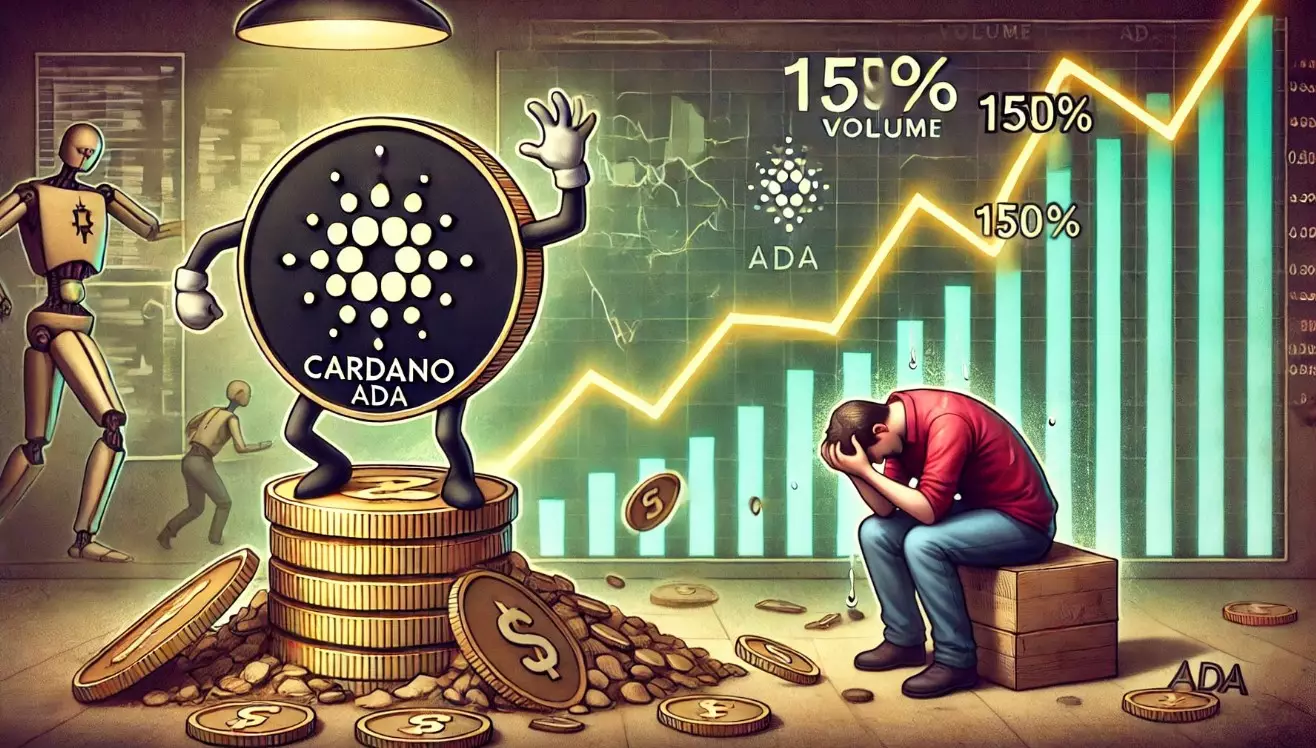In September, the Cardano blockchain underwent a significant transformation with the implementation of the Chang hard fork, a move that has sparked renewed interest and positioned Cardano (ADA) at the forefront of the cryptocurrency landscape. Charles Hoskinson, co-founder of both Cardano and Ethereum (ETH), has been vocal about the advancement of Cardano following this upgrade, informing the community of its advantages over notable cryptocurrencies, including Bitcoin (BTC). This upgrade is not merely a technical enhancement; it represents a fundamental shift in how Cardano operates, particularly in fostering a decentralized governance model that aims to empower its user base.
Hoskinson’s public remarks on platforms such as X (formerly Twitter) reinforce Cardano’s burgeoning status within this competitive ecosystem. His assertive claim that Cardano remains “number 1” is not just a boast; it reflects a strategic vision aimed at creating a blockchain that prioritizes decentralization. At the recent Token2049 Conference in Singapore, he elaborated on this perspective, discussing the need for a governance model that decentralizes power away from a close-knit group and instead distributes it among a broader community. This remark is pivotal, highlighting a critical aspect of innovation and development in blockchain technology.
The crux of Hoskinson’s argument lies in the differences between Cardano and Ethereum’s governance frameworks. He has pointed out what he perceives as inherent flaws in Ethereum’s structure, particularly its dependency on founder Vitalik Buterin. This centralization, according to Hoskinson, leads to bottlenecks that stifle innovation and can undermine the long-term sustainability of the network. In contrast, Cardano’s Chang hard fork introduced a robust governance system whereby decentralized representatives, or DReps, can actively participate in decision-making processes through voting, thereby democratizing governance and promoting continuous innovation.
Such a model not only enhances community engagement but also ensures that development is not tethered to the capabilities or presence of any singular individual. “Charles, alive or dead, doesn’t matter,” Hoskinson emphasizes. With this democratized approach, Cardano appears poised to foster ongoing advancements driven by diverse contributors rather than a centralized authority. This shift could potentially redefine how blockchain networks manage their development and direction in the long run.
Recent metrics illustrate Cardano’s substantial growth since its inception seven years ago. More than 74,000 Plutus scripts have been created, and the blockchain has seen the establishment of approximately 1.3 million delegated wallets. These numbers are not just statistics; they signify a thriving ecosystem with real-world applications and a community that is eager to participate and innovate. Moreover, the launch of 1,373 projects on the Cardano platform, as showcased in a recent video by Input Output Global (IOG), underscores the potential for future developments and innovations.
Looking to the horizon, Cardano is on the verge of implementing further changes that would enhance its governance structure. The transition from the initial genesis keys, which have long been used to manage the network, marks a crucial step towards complete decentralization. This transition will be bolstered by increased input from stake pool operators (SPOs) and DReps, as well as the formation of a Constitutional Committee (CC) aimed at overseeing future developments.
The ultimate goal for Cardano is to embrace the Voltaire era, which signifies the emergence of a fully self-sustaining blockchain ecosystem. This phase will commence upon the final deployment of the genesis keys, a pivotal moment that will likely coincide with another hard fork. However, the precise timeline for these advancements remains uncertain, as neither IOG nor Hoskinson has provided specific dates for forthcoming changes.
The Chang hard fork not only repositions Cardano within the crypto landscape but also sets a foundation for a more involved and decentralized community. By confronting the centralization challenges faced by other blockchains, Charles Hoskinson’s vision for Cardano could pave the way for a more equitable and innovative blockchain future, fostering a community-driven environment where technological advancements thrive without the constraints of centralized power.















